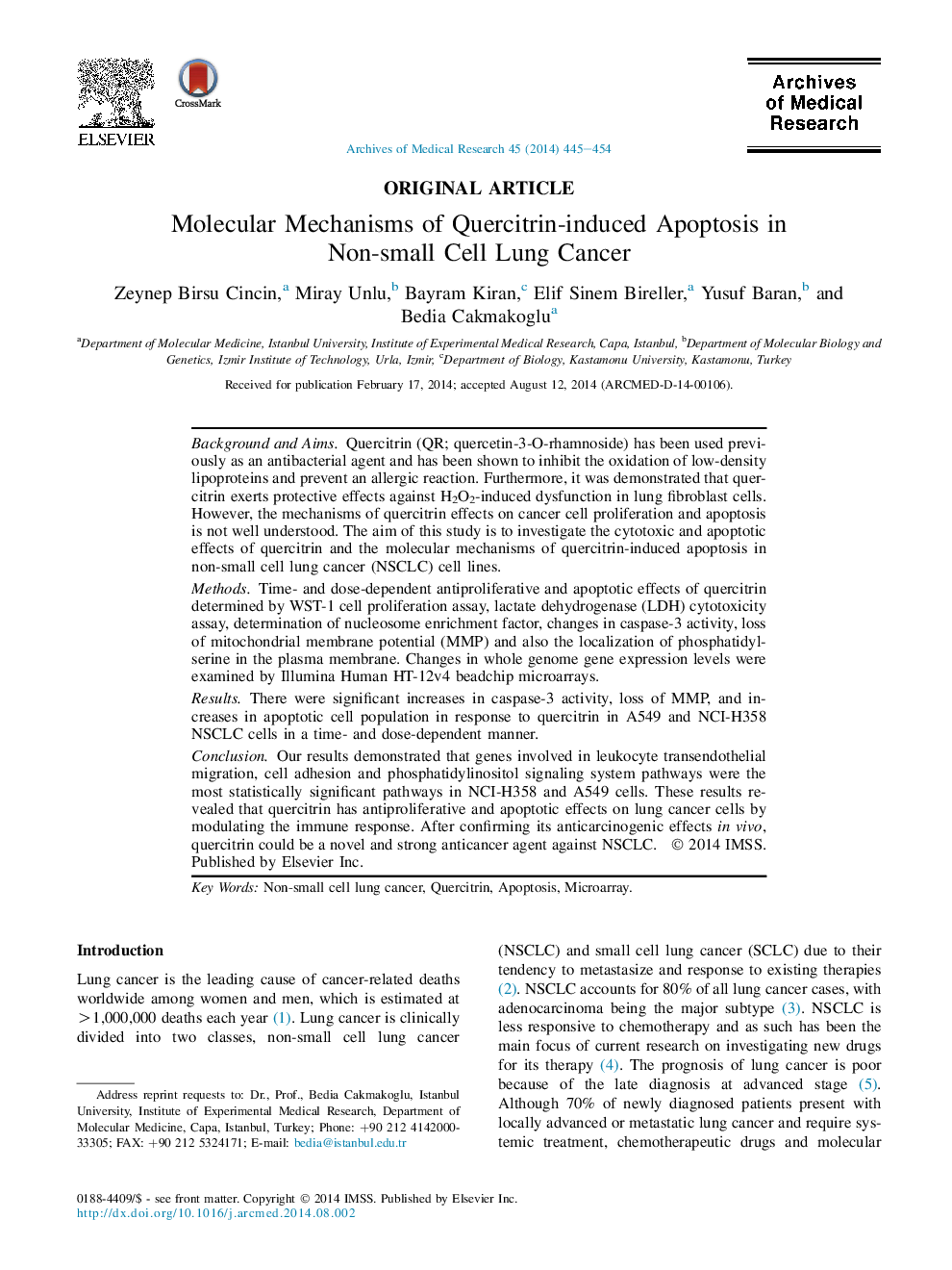| کد مقاله | کد نشریه | سال انتشار | مقاله انگلیسی | نسخه تمام متن |
|---|---|---|---|---|
| 3446517 | 1595469 | 2014 | 10 صفحه PDF | دانلود رایگان |
Background and AimsQuercitrin (QR; quercetin-3-O-rhamnoside) has been used previously as an antibacterial agent and has been shown to inhibit the oxidation of low-density lipoproteins and prevent an allergic reaction. Furthermore, it was demonstrated that quercitrin exerts protective effects against H2O2-induced dysfunction in lung fibroblast cells. However, the mechanisms of quercitrin effects on cancer cell proliferation and apoptosis is not well understood. The aim of this study is to investigate the cytotoxic and apoptotic effects of quercitrin and the molecular mechanisms of quercitrin-induced apoptosis in non-small cell lung cancer (NSCLC) cell lines.MethodsTime- and dose-dependent antiproliferative and apoptotic effects of quercitrin determined by WST-1 cell proliferation assay, lactate dehydrogenase (LDH) cytotoxicity assay, determination of nucleosome enrichment factor, changes in caspase-3 activity, loss of mitochondrial membrane potential (MMP) and also the localization of phosphatidylserine in the plasma membrane. Changes in whole genome gene expression levels were examined by Illumina Human HT-12v4 beadchip microarrays.ResultsThere were significant increases in caspase-3 activity, loss of MMP, and increases in apoptotic cell population in response to quercitrin in A549 and NCI-H358 NSCLC cells in a time- and dose-dependent manner.ConclusionOur results demonstrated that genes involved in leukocyte transendothelial migration, cell adhesion and phosphatidylinositol signaling system pathways were the most statistically significant pathways in NCI-H358 and A549 cells. These results revealed that quercitrin has antiproliferative and apoptotic effects on lung cancer cells by modulating the immune response. After confirming its anticarcinogenic effects in vivo, quercitrin could be a novel and strong anticancer agent against NSCLC.
Journal: Archives of Medical Research - Volume 45, Issue 6, August 2014, Pages 445–454
